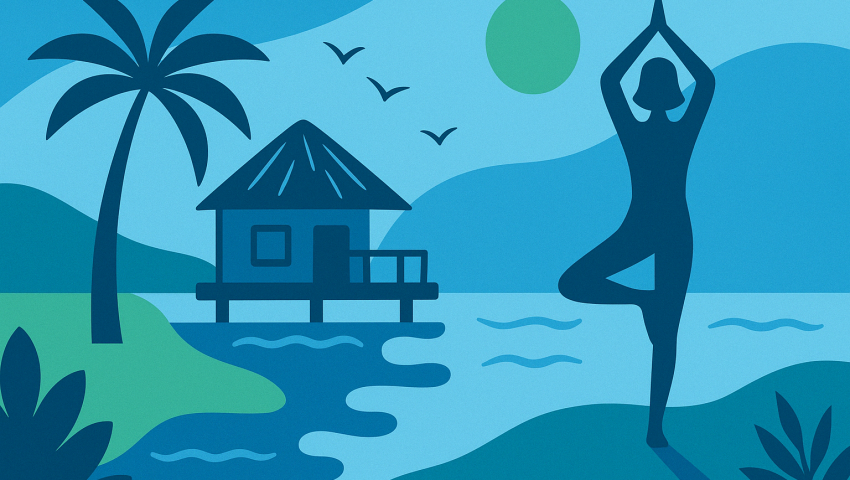
Tourism 3.0: Rethinking Hospitality for the Conscious Traveler
How the Maldives and Global Resorts Are Adapting to a New Era of Eco-Luxury, Mindful Travel, and Authentic Experiences
The golden age of travel is evolving—and fast. Today’s traveler isn’t just looking for five-star service and beachfront views. They’re seeking meaning, impact, and transformation. Enter Tourism 3.0—a new era defined by eco-consciousness, wellness, digital detox, and deep cultural immersion.
For destinations like the Maldives, this shift represents both a challenge and an opportunity: a call to move beyond the infinity pool, and design hospitality experiences that are not only luxurious but also purpose-driven, personal, and planet-aware.
This article explores how tourism leaders in the Maldives and beyond can embrace Tourism 3.0 to attract the next generation of global travelers—while building more sustainable, soulful, and resilient hospitality businesses.
Understanding IsUnderstanding Tourism 3.0: From Indulgence to Intention
Travel has always been about escape. But post-pandemic, it’s also about awakening.
Travelers are no longer satisfied with passive luxury. They want to connect with nature, support local communities, care for the environment, and rediscover themselves along the way. According to Google’s Travel Trends Report, search interest in terms like “eco resorts,” “wellness retreats,” and “digital detox vacations” have more than doubled over the past three years.
And in destinations like the Maldives, this conscious shift isn’t theoretical—it’s transforming how resorts are built, experiences are curated, and value is defined.
“Luxury is no longer defined by excess, but by access—to nature, to culture, to wellness, and to meaning.” — Yusuf A. Shunan, Founder, Maldicore
What Is Tourism 3.0?
Tourism 1.0 was about access—getting people to new destinations.
Tourism 2.0 was about amenities—upgrading experiences with five-star comforts.
Tourism 3.0 is about awareness—of one’s impact, health, and the world around them.
It’s a model shaped by travelers who want:
- Eco-luxury: Guilt-free indulgence rooted in sustainability
- Wellness escapes: Mind-body-spirit balance with purpose-built design
- Digital detox: Disconnection from screens, reconnection with self
- Cultural immersion: Real encounters with local people, stories, and traditions
- Low-impact luxury: From solar-powered villas to reef-safe amenities
According to the UNWTO, over 73% of global travelers now say that “sustainability and cultural sensitivity” influence their travel choices.
How Resorts in the Maldives Are Adapting
The Maldives has long been a luxury destination—but today, it is rapidly evolving to meet the needs of the conscious traveler.
1. Eco-Luxury and Regenerative Design
Resorts like Soneva Fushi and Gili Lankanfushi lead the region in eco-luxury—offering barefoot elegance powered by solar grids, zero-waste kitchens, and coral restoration programs.
Features:
- Upcycled architecture using local materials
- On-island composting and desalination
- Carbon offset programs and green certifications (e.g., EarthCheck, LEED)
2. Wellness-First Architecture and Retreat Programming
Properties like Joali Being have taken wellness to new heights—designing entire island experiences around sound therapy, hydrotherapy, nutrition, and mental wellness.
Offerings:
- Ayurvedic consultations
- Sleep therapy suites
- Forest bathing trails and meditation pavilions
- Plant-based, anti-inflammatory cuisine
3. Authentic Cultural Experiences
Tourism 3.0 encourages human connection—and some Maldivian properties are now creating guest experiences that go beyond the resort gates.
Examples:
- Day trips to local islands for heritage walks and cooking classes
- Dhivehi language and music sessions
- Artisan marketplaces supporting local crafts and female entrepreneurs
- Storytelling evenings with elders or marine experts
4. Digital Detox Zones
With rising awareness of screen fatigue, many resorts are now offering WiFi-free areas, phone-free beaches, and packages that include “disconnection kits”—with journals, analog cameras, and reading collections.
Impact:
- Guests report higher satisfaction levels and better sleep quality
- Digital detox packages command higher average daily rates (ADR) among millennials and Gen Z
🔹 Why Tourism 3.0 Is the Future (and How to Prepare)
- 73% of global travelers want more sustainable travel options (UNWTO, 2023)
- 41% of travelers seek health and wellness-based stays
- 59% of Gen Z prefer brands that reflect their values
- Properties that offer eco or cultural experiences see up to 30% higher guest return rates
Strategic Guidelines for Hospitality Developers and Planners
To build or reposition for the Tourism 3.0 traveler, consider the following:
✅ Rethink Property Design
Create architecture that breathes with the environment—prioritize biophilic design, natural airflow, and local materials.
✅ Go Beyond Sustainability—Be Regenerative
Think beyond reducing harm. How does your resort give back to reefs, rainwater, or local economies?
✅ Integrate Culture Authentically
Hire and train locals to share their own stories, not staged performances. Design programs with respect, not tourism clichés.
✅ Build Wellness into the Foundation
Don’t treat wellness as a spa add-on—design it into every corner of the guest journey, from nutrition to lighting to noise.
✅ Design for Digital Boundaries
Offer guests choices to unplug—with environments that make silence, solitude, and stillness inviting.
Conclusion: Hospitality as a Healing Space
The rise of Tourism 3.0 isn’t a trend—it’s a transition. As global travelers shift from consumption to consciousness, hospitality must evolve into a platform for transformation.
The Maldives, with its natural beauty and deep cultural roots, is uniquely poised to lead this movement. But success will come not to those who build bigger villas—but to those who design experiences that resonate, regenerate, and restore.
For resort developers, tourism boards, and destination planners, the question is no longer “How luxurious is your offering?”—but “How meaningful is the experience you’re creating?”
In the age of Tourism 3.0, hospitality isn’t just about escape—it’s about evolution.


